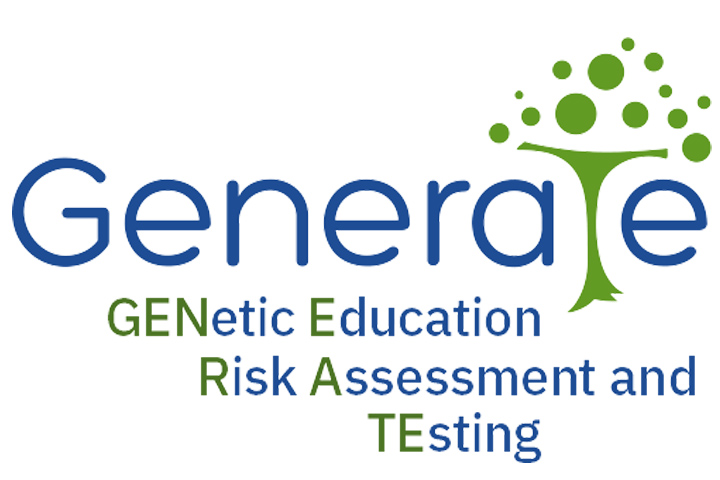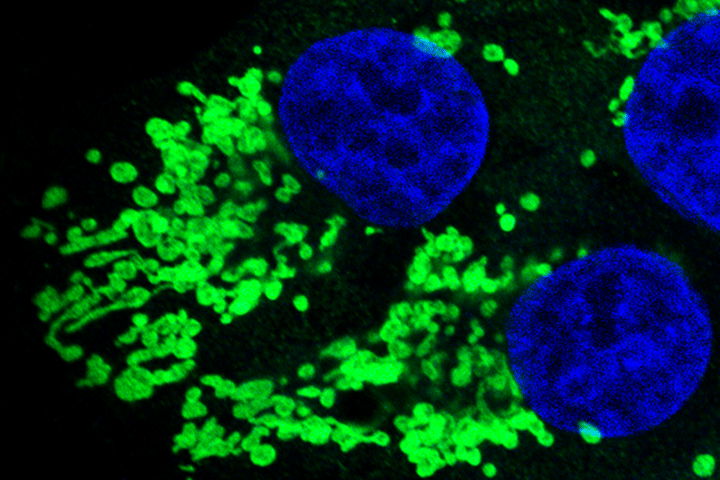GENERATE Study Aims to Improve Genetic Testing and Prevention for Pancreatic Cancer

While it was barely on anyone’s radar a decade ago, what’s become clear is that genetic testing can potentially play an important role in pancreatic cancer prevention and early detection.
Based on several studies published within the last year alone, the National Comprehensive Cancer Network (NCCN) now recommends all pancreatic cancer patients—regardless of family history—receive genetic testing for an array of inherited mutations that can increase a person’s risk of developing the disease.
With the incidence of pancreatic cancer rising but the median five-year survival rate still hovering around 9 percent, ways to catch the disease earlier are sorely needed. That’s why genetic researchers are excited about a new cancer interception study called GENERATE, which stands for GENetic Education, Risk Assessment, and TEsting. The ultimate goal of the study is to improve genetic testing and cancer prevention in family members of pancreatic cancer patients with inherited mutations.
Genetic Testing and Education
The study will also measure how different methods of genetic education increase the rate of genetic testing in these families, which is an important first step for this study, explains lead investigator and cancer genetics and prevention expert Dr. Sapna Syngal of Dana-Farber Cancer Institute in Boston. It’s an ambitious study, with researchers hoping to enroll up to 1,000 participants nationally. Collaborating sites include Dana-Farber, MD Anderson Cancer Center (Houston), Johns Hopkins (Baltimore), UC San Diego Health, Mayo Clinic (Rochester, Minnesota), and Weill Cornell Medicine (New York).
The study takes place in people’s homes via the internet and a mailed-in saliva sample for testing. An in-person genetic session before getting genetic testing can be skipped if the participant wishes, and all participants will be given information on local genetic counseling and support services. Genetic testing is provided free of charge.
“I think people are excited because this study is just so out of the box,” says Syngal, who serves as Director of Research, Center for Cancer Genetics and Prevention and Director, Gastrointestinal Cancer Genetics and Prevention programs at Dana-Farber. “This is an interception study and one way to look at it is we will act like a quarterback and it won’t matter if the person lives in New York or Nebraska.”
Indeed, with interception studies researchers want to catch the disease or “intercept” it before cells that might be suspicious actually become malignant and spread out of control. One of the best examples of this idea of “interception” in practice—and available to the general public, not just those at highest risk—is the use of colonoscopy to detect and remove precancerous polyps before they turn into colon cancer.
“In our study, once we get the ball, or in this case the test results of our participants, we can help family members navigate follow-up,” Syngal notes. “And we’ll learn more about what people think about genetic testing or not getting tested. This whole study is designed for ease of participation.”
Cascade Testing for Susceptibility Genes
Pancreatic cancer is notoriously tough. First, it is relatively rare, and there is currently no available population-based screening test. Screening of those at high risk, however, including those with a strong family history of the disease or an inherited mutation, is more feasible and potentially effective, Syngal says. “Basically what we’re doing in this study is cascade testing,” she explains. “Roughly, about one in 10 patients with pancreatic cancer carry a susceptibility gene. And that gene can be passed down through families. With cascade testing, we can identify the mutation in the patient, then in blood relatives.” Participants can then benefit from learning about their risk and plans can be devised for frequent screening follow-up, she adds.
Cascade testing can be difficult in clinical practice, though. “First, people might not really understand the importance of germline testing and how identifying certain genes can benefit in terms of prevention or earlier detection,” Syngal says. “Family dynamics also play a role, plus family members can live in numerous different states, spread across the country.” One of the other issues is fear, with people simply not wanting to know their risk for a disease. Access to genetic testing and counseling can also be an issue, especially in smaller or rural areas. “We need to find out more about what barriers people have to testing,” Syngal adds. “And then we need to find ways around those barriers.”
A Unique Study Design
Indeed, the GENERATE study is designed to help researchers learn more about how individuals want to receive information and follow-up. From that data, they hope to design future programs that better meet those needs.
The 1,000 participants in GENERATE will represent about 200 families that have a confirmed pathogenic germline variant in these genes: APC, ATM, BRCA1, BRCA2, CDKN2A, EPCAM, MLH1, MSH2, MSH6, PALB2, PMS2, STK11, and TP53. Participants will be remotely enrolled through the study website (www.generatestudy.org) and randomized between two different methods of cascade testing. Arm 1 study participants will undergo pretest genetic education with a prerecorded video and live interactive session with a genetic counselor via a web-based telemedicine platform. This will be followed by germline testing. Study participants in Arm 2 will undergo germline testing without dedicated pretest genetic education. Genetic testing results will be provided to study personnel and directly to Arm 1 and Arm 2 study participants. Both groups will have the option of pursuing additional telephone-based genetic counseling.
It’s important to note that although everyone enrolled in the study will have the option to undergo genetic testing, participants don’t have to go through with the test if they don’t want to once initial education is completed. “This is important because we want to know why someone would choose not to move forward with testing,” Syngal says. “We want to understand what people are thinking because there very well could be other reasons why besides fear.”
To be eligible, participants must have a blood relative who has (or had) pancreatic cancer that was caused by one of these inherited mutations in a gene, identified through genetic testing. Participants must be able to provide the genetic test report of the family member with a genetic mutation. They also must not have had pancreatic cancer, or had any prior genetic testing or counseling for cancer risk prior to study participation, among other eligibility requirements.
“There was a tremendous amount of thought put into this study design and how we are going to best communicate the ins and outs of genetic testing,” she notes, adding that about 90 percent of people with a mutation won’t go on to develop pancreatic cancer, with some variance depending on which mutation(s) a family may carry.
With advances being made in treatment, knowing your genetic risk will play an increasingly important role. “Today, we know that pancreatic cancer patients with a BRCA mutation respond well to PARP inhibitors,” Syngal says. “As research continues, we’re going to learn more about other new agents that will work best for patients with other mutations.”
But Syngal also emphasizes the very real possibility of prevention in the future. “We always talk about the earlier detection and of course that is vital, especially with a disease like pancreatic cancer,” she says. “But let’s not forget about prevention, literally preventing the pancreatic cancer from developing. We are learning more all the time about pancreatic cancer development, and I do believe that prevention will be possible.”
Funding for this study is provided by the Pancreatic Cancer Collective, a collaboration between the Lustgarten Foundation and Stand Up To Cancer. To learn more, visit the GENERATE website or ClinicalTrials.gov.





